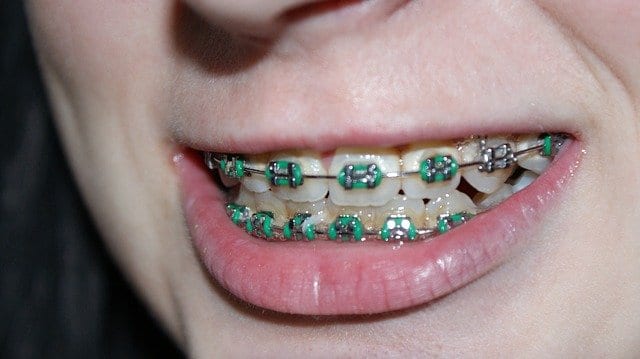Hey Guys! It’s Dr. Karpac.
Due to COVID-19, our office is postponing any non-emergency appointments, and you may be wondering how to handle potential orthodontic issues at home. While there are steps you can take to temporarily fix or alleviate discomfort and prevent additional damage, you should still let us know. Contact us if you have any concerns during this time. Many times, we may be able to handle the issue over the phone or virtually through video communication. During this time, make sure to stay in contact with us if you need to have any appointments rescheduled.
Tools + Supplies
With these tools and supplies on hand, you will be prepared to handle the most common orthodontic issues:
- Orthodontic relief wax
- Dental floss
- Disinfected tweezers
- Q-tips
- Salt
- Interproximal brush
- Toothpicks
- Non-prescription pain reliever (acetaminophen or ibuprofen)
- Topical Anesthetic (such as Orabase or Ora-Gel)
Lost O-ring
An “O” ring is the tiny rubber band or sometimes a very thin wire (ligature), that holds the orthodontic wire in the bracket/brace. If a rubber o-ring should come off, you may be able to put it back in place using disinfected tweezers. If a wire ligature comes loose, simply remove it with the tweezers. If the wire ligature is sticking out into the lip but is not loose, it may be bent back down with a Q-tip or pencil eraser to eliminate the irritation. Should this happen, be sure to contact us to notify us and come up with a plan for repair. Note: self-ligating brackets don’t use o-rings.
Discomfort
It’s normal to have some discomfort during orthodontic treatment as your teeth move, however it should not last longer than a couple days. Rinsing your mouth with warm salt water and over-the-counter pain relievers, such as acetaminophen or ibuprofen, may alleviate some discomfort. If the discomfort lasts longer than a couple days, be sure to call us to discuss.
Mouth Sores
Some patients are susceptible to episodes of mouth sores. While braces do not cause them, they may be precipitated or exacerbated by an irritation from braces. One or several areas of ulceration of the cheeks, lips or tongue may appear. This is not an emergency but may be very uncomfortable. Prompt relief may be achieved by applying a small amount of topical anesthetic (such as Orabase or Ora-Gel) directly to the ulcerated surface using a cotton swab – reapply as needed. If after a couple days the discomfort does not resolve, call us to discuss.
Irritation in Mouth
Sometimes braces or wires can be irritating to the mouth, especially when eating. A small amount of orthodontic relief wax makes an excellent buffer between metal and mouth. Simply pinch off a small piece and roll it into a ball the size of a small pea. Flatten the ball and place it completely over the area of the braces causing irritation. Wax can be purchased at any drug store if you are unable to get some from your orthodontist during this time.
Protruding Wire
Occasionally the end of a wire will work itself out of place and can irritate the mouth. Use a Q-tip or clean tweezer and try to push the wire so that it is flat against the tooth. If the wire cannot be moved into a comfortable position, cover it with relief wax. Should changes with your wires occur during this time be sure to contact us to make us aware of the issue.
Loose Braces or Bands
If the braces or bands have come loose in any way, call us to determine appropriate next steps.
Stay safe and be well,
-Dr. Karpac

